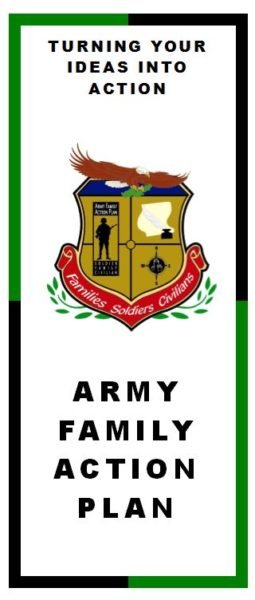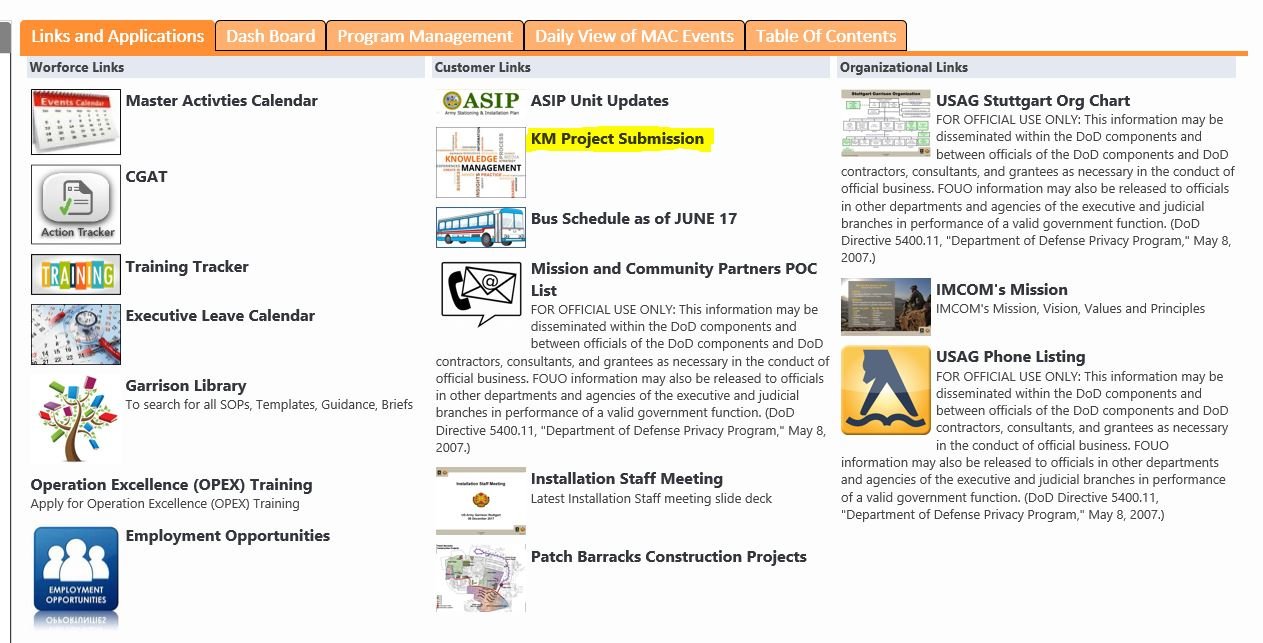By Holly DeCarlo-White
USAG Stuttgart Public Affairs Office
In Stuttgart, the A in Army Family Action Plan, or AFAP, really stands for “All-Services” Family Action Plan as our community is made-up of personnel and family members from all branches of service, and includes a large civilian workforce.
 What is AFAP?
What is AFAP?
The AFAP program began more than 30 years ago, created by spouses, with the intent of raising quality-of-life issues to higher leadership for action. Every issue submitted is addressed at an annual forum and responded to.
Who can participate?
All U.S. Department of Defense ID cardholders can submit quality-of-life issues to be addressed by garrison leadership. Issues can be submitted year-round. The deadline for items to be reviewed in this years forum will be in September. Issues submitted after this deadline will be reviewed at the next years AFAP forum.
Delegates are requested from each branch of service, including spouses, from various commands to attend the forum, discuss the issues together, and share ideas for resolutions at the local level. Valid issues that reach beyond local level capability are shared with the region, then with the DOD. The annual forum is held in the fall, hosted by Army Community Service (ACS) on Panzer Kaserne.
What can be accomplished?
This grassroots program has generated thousands of regulatory changes around the world.
- 2017 submitted issues recap coming soon.
- Read more about 2016 submitted issues.
Following the forum, delegates present the prioritized issues to the garrison commander for review and resolution. Items that cannot be responded to locally are sent forward to the region level for review and response. A recap of each issue and resolution is published for the community by the garrison Public Affairs Office.
Examples of changes through AFAP:
- The Army Family Readiness Program was established
- Unlimited Commissary Privileges for Reserve Component
- Programs like Exceptional Family Member Program (EFMP), Army Family Team Building (AFTB), and Better Opportunities for Single Soldiers (BOSS) were born
- Distribution of Montgomery GI Bill Benefits to Family Members
- Dental and Vision Insurance Coverage for Federal Employees
What’s the difference between AFAP and ICE, or Knowledge Management submissions?
- Issues submitted through AFAP concern the entire population living and working within the garrison and beyond. Changes can affect personnel and families Army-wide or even DOD-wide.
- Interactive Customer Evaluation (ICE) comments are single incidents, concerns and feedback that affect individuals, vs. the community at large. Think of the ICE system as a place to submit a service comment card or pulse check for personnel and leadership.
- Knowledge Management issue submission affects the garrison-at-large impacting changes in local garrison services, processes, workflow and automation. These changes can often be resolved on a faster time-line as compared to AFAP submissions as leaders at the local garrison level can implement these suggestions or improvements directly.
How to submit Stuttgart AFAP issues
- Complete the form and submit it via email to ACS.
- Complete the form in-person at ACS, Building 2915, Panzer Kaserne
- Register online and submit issues at https://www.myarmyonesource.com.

Organization volunteers, Family Readiness Group leaders and personnel may also volunteer to lead issue collection within their units. Contact ACS to get started at DSN: 431-3362/civ. 07031-15-3362.
How to submit Stuttgart Knowledge Management Improvement Ideas
Submit issues and solutions for process improvements internally in any area of the garrison. Personnel within the Stuttgart garrison are encouraged to submit process improvements through the Knowledge Management Working Group via the garrison SharePoint (CAC access only), here.

